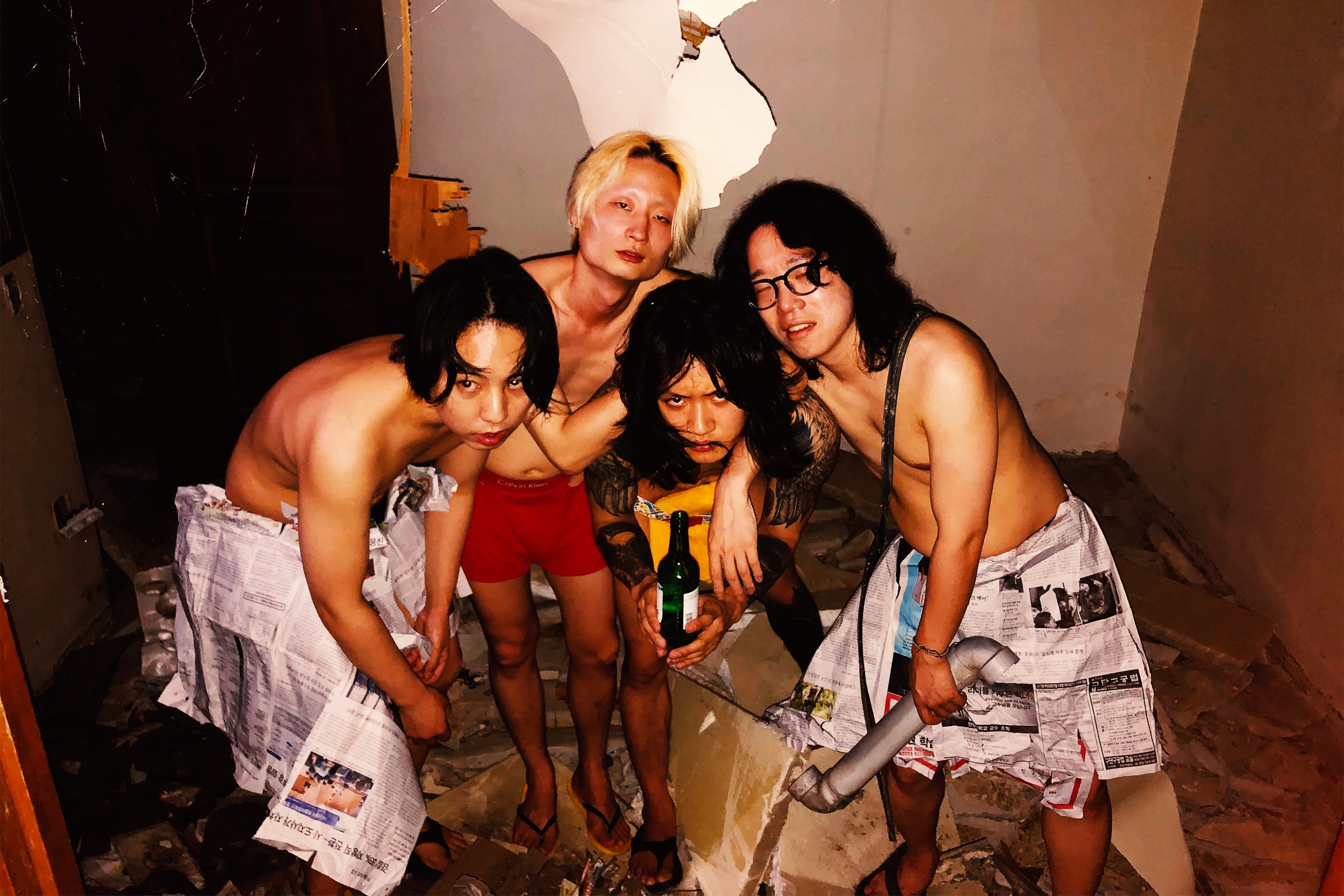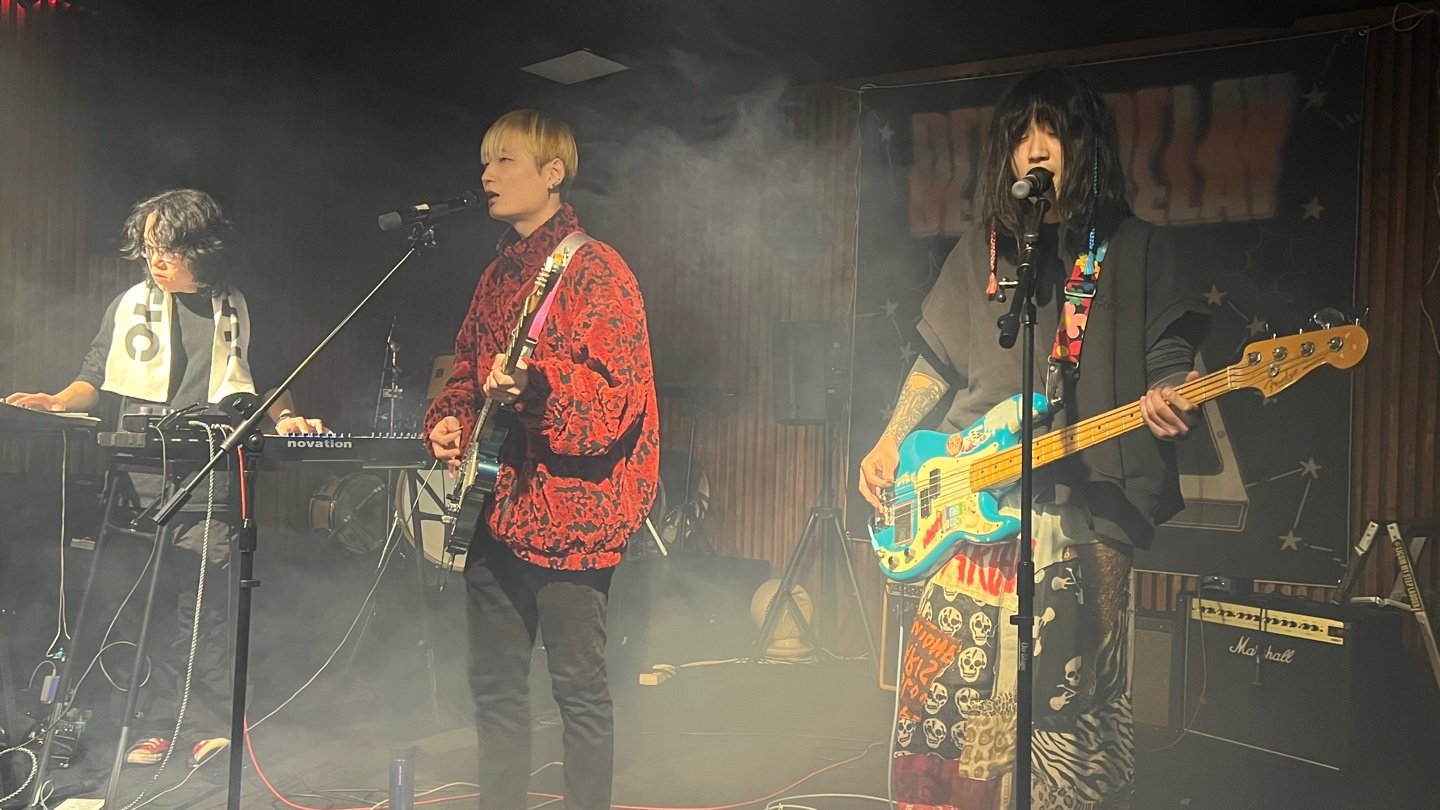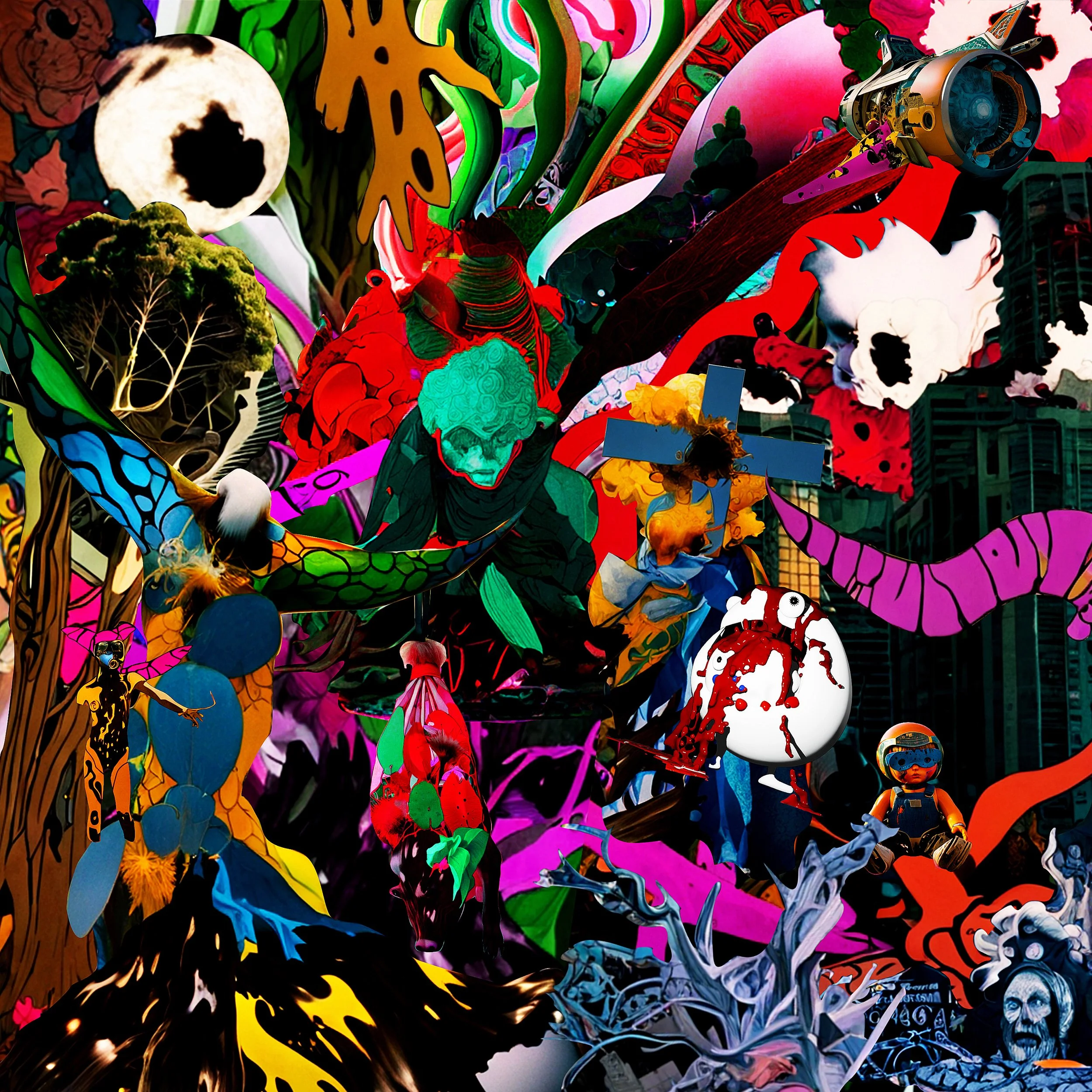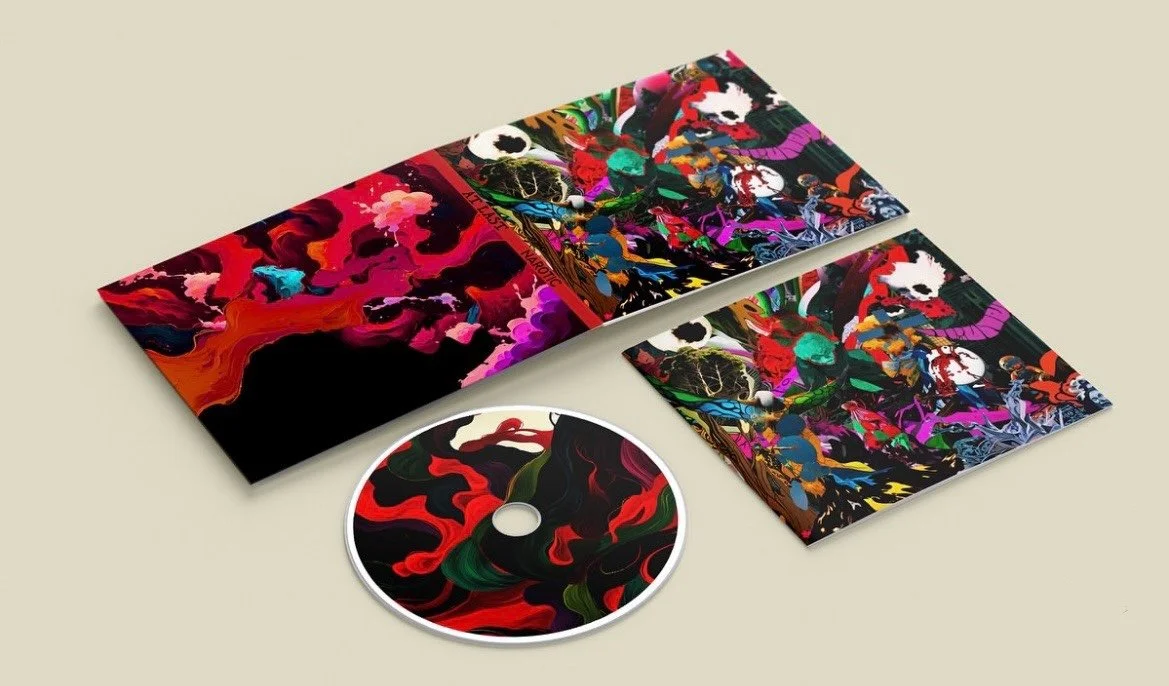Narotic wants to wake up the world with new album “AT LAST”
Written by Charity Lynn (@_charitylynn_)
Translations by Sean Yoo (@seanyoo_)
Narotic is a four-piece alternative-rock band consisting of Woong (vocal and guitar), Hyuk (keyboard), Ethan (drums), and Seddon (bass). They explore a range of genres, including shoegaze, post-rock, and psychedelia. Although much of their music touches on more dark, social topics, there is still a sense of hope and love. With their upcoming album AT LAST, out on March 20th, the band hope to serve a wake up call for humanity.
AT LAST follows a dystopian tale of two protagonists, River and Ophelia, trying to survive in the remnants of a post-apocalyptic world, brought upon by endless war and climate change. “It’s not a romantic plot,” clarifies Woong, “but rather a story of survival. I was heavily inspired by the dystopian book Oryx and Crake by Margaret Atwood.” Additionally, he mentioned that they wanted to create an album that tells a story, similar to The Wall by Pink Floyd. These two influences prompted the start of the album's creation.
Each member has their own interpretation of the themes present in the album. However, one message is clear: humanity must take action or meet an inevitable demise. “I think people live to die, rather than to live,” says Hyuk. He hopes the album acts as an “aggressive warning” about the potentially fatal path ahead of us.
Ethan, on the other hand, has a bit of a brighter interpretation. “It’s possible that there is a hint of sarcasm throughout AT LAST,” he claims, “that maybe sometimes there is a death worth dying for.” Despite the frustrated feelings conjured by traumatic global events, humans must persevere, argues Ethan. “It's not a happy and positive story, but we must find the will to live on.”
Similarly, Seddon believes that “even though these events can make us feel defeated, every person is strong and mustn't give up.”
“I want to live,” proclaims Woong. “But with the way the world is going – war, pollution, inequality, racism, fascism – we are all going to die and it’ll be like hell. I felt like I needed to say something.” He believes that people should show more interest in social issues and hopes the album urges some to make a change.
There are a total of fourteen songs telling this story, and the members have varied takes on which one has the most significance. For Seddon, it’s Ophelia, which he says “feels great to play live.” Because of its intricate nature, there is a connectedness on stage between the members and their instruments during this song.
According to Ethan, Things That Disappear was the track that required the most assiduous attention. After hundreds of takes, his effort shines through in the final recording. He also highlights Forgive Us. “It feels like the pivotal point in the story, where River longs for someone–anyone–to forgive him, but there’s no one there.”
Woong points to River and Survivor as songs he enjoys, particularly for their religious themes. “We took a lot of inspiration from the Bible, and many lyrics we wrote were based on that.”
Hyuk says that, as a performer, he likes how Galbi and Stroke have the most energy to express to the audience. But as a listener, his choice is River. There’s an air of tension on River that builds until the aggressive presence of a traditional Korean wind instrument called the taepyeongso finally shatters it.
Woong says he wants to incorporate more Asian traditional sounds and instruments in his music. “We are Asian, after all,” he says. “I’d like that aspect of our identity to be more present within our work going forward.”
There are other traditional Korean instruments they want to try out in addition to the taepyeongso. For instance, the daegeum, which is similar to a flute, the haegeum, which produces a sound similar to the cello, and even the pyeongyeong, a rather impressive-looking percussion instrument made with stones or metal bells. To find these instruments, Narotic often turn to post-rock fusion band Jambinai, whose frontperson recorded the taepyeongso for the song River.
Jazz also plays an important role on the new album. This might surprise some Narotic fans, but if you listen carefully, it totally makes sense. While each member has different musical influences, it was their shared love of jazz that helped them the most. Artists like Brad Mehldau, Phronesis, Mammal Hands, and GoGo Penguin were some names mentioned. As a result, AT LAST has a more dynamic and distinct presence compared to Narotic’s previous work.
AT LAST is available on streaming platforms from Thursday, March 20th – the day before their album showcase performance at West Bridge Hall on March 21st. “We want the audience to think of this performance as a sort of live-action movie version of the album,” they explain, “we want to show our audience just how much we have improved and grown as a band.”
The band encourage listeners to listen to the album before the show, and make their own conclusions. They even invite people to share their takes on the new material after the performance. “We would love to hear the interpretations people have about the story,” they say.
The band are especially interested in how people perceive the finale of AT LAST’s story, which has an ambiguous sense of hope encrypted within its ending. “I’d like to hear the audience’s interpretations on that,” says Woong. “But, I will say one thing: it’s definitely not hopeless.” Hyuk agrees that the story has a bit of an open ending. However, to him, the end seems to signify a “bittersweet start to a new beginning.” Ethan and Seddon have some optimism about a happy ending. However, he remains concerned that we are going to make the same mistakes over and over again. “It’s going to be like a never-ending nightmare.”




